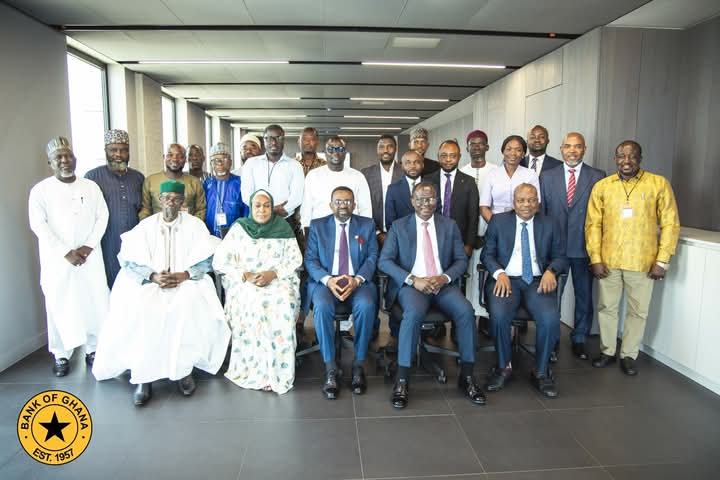BoG engages Muslim groups on non-interest banking and finance

Accra: The Central Bank of Ghana has met with representatives of various Muslim groups to solicit inputs on the implementation of non-interest banking and finance (NIBF) in the country.
The move was part of a broader stakeholder engagement strategy to get the buy-in of citizens as the Bank works on the institutional, legal, and regulatory framework required for the operationalisation of NIBF.
At the meeting held on Wednesday, September 3, 2025, Dr Johnson Asiama, Governor of the Central Bank, emphasised that non-interest banking would expand financial inclusion and create opportunities for all.
He stated that the Bank of Ghana has come to appreciate NIBF as part of the global financial system that operates without charging or paying interest (usury).
He indicated that transactions under NIBF only result in profit and loss sharing in line with partnership arrangements.
“As a critical regulator, our paramount interest is the business case and inherent benefits of NIBF to the economy and particularly to achieve financial inclusion with product diversification and choice,” he said.
The NIBF sector has gained considerable global traction, with a total balance sheet size exceeding US$5.5 trillion as of end-December 2024 and a high impact on sovereign and corporate project finance and the microfinance sector.
Across Africa, countries such as Nigeria, Kenya, Uganda, Tanzania, and South Africa have taken proactive steps in developing NIBF as a means of fostering financial inclusion, particularly for unbanked populations.
Beyond the continent, countries such as the United Kingdom, Malaysia, the Netherlands, Japan, Singapore, Hong Kong and Luxembourg, just to mention a few countries, have embraced NIBF, recognising its potential to attract diversified investment and promote sustainable financial services.

According to a report by the United Nations, Ghana will require an estimated US$37.9 billion annually to meet its infrastructure financing needs and to achieve the Sustainable Development Goals (SDGs).
Dr Asiamah observed that due to the fiscal constraints, many developing economies, including Ghana, are turning to innovative financing instruments such as Sukuk Bonds, a core component of NIBF.

Sheikh Armiyawo Shaibu, spokesperson for the National Chief Imam, stressed that non-interest banking should be seen more as a business case than a religious issue, highlighting its potential to serve both faith-based communities and the broader economy.
So far, the Central Bank has engaged other stakeholder groups, including the Christian clergy.
Join our whatsapp channel for all the latest updates.
For news coverage, article publication, and advertisement, send an email to ghanaianminaret@gmail.com or reach us via whatsapp, telegram or phone call on +233266666773.

